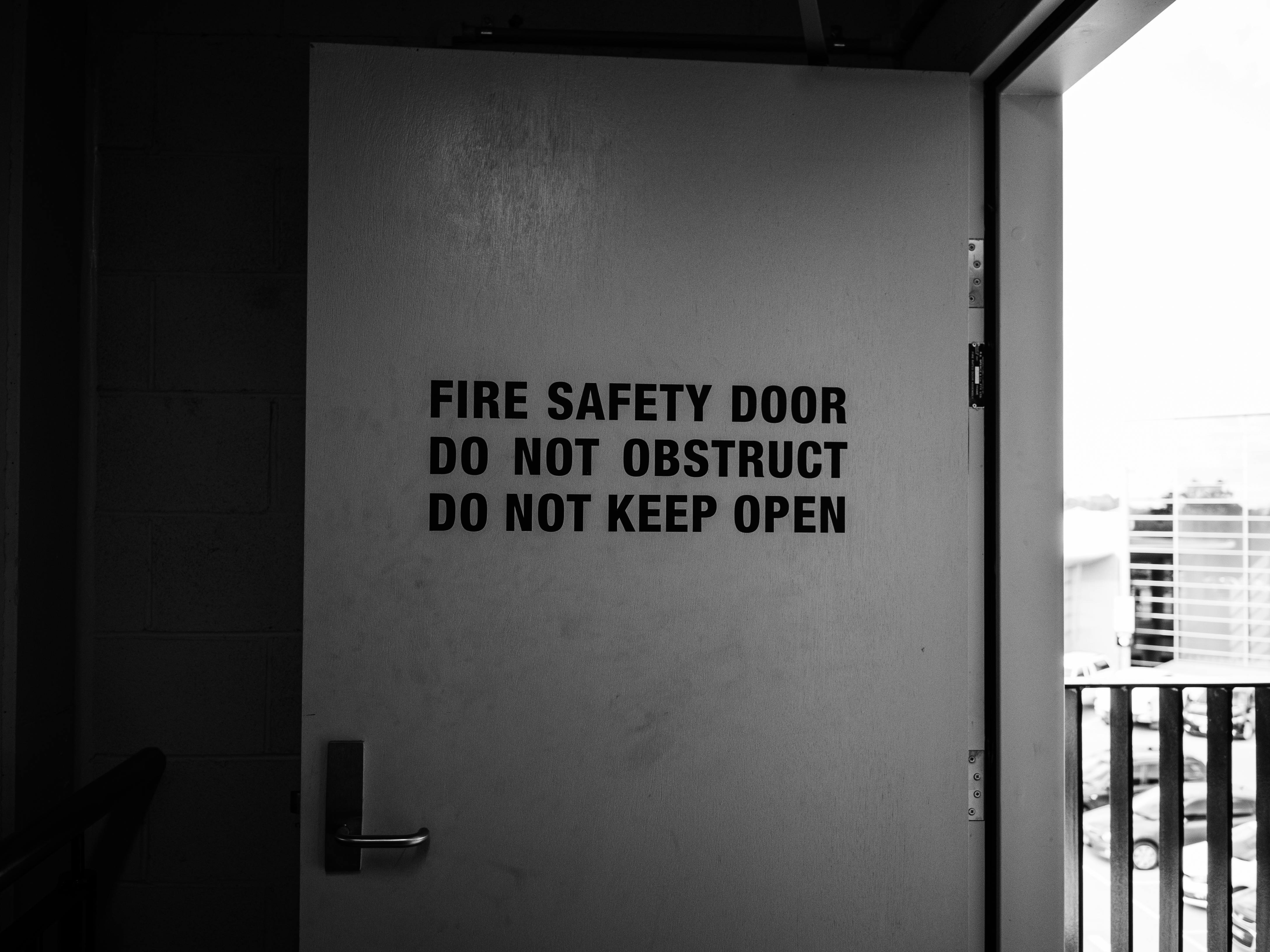
It’s a legal requirement for fire doors to be inspected, but how often depends on the type of building and its use. Since the law changed in 2022, with the implementation of the Building Safety Act after the tragedy of the Grenfell Tower fire, fire door risk assessments must be completed more frequently to ensure doors are fit for purpose, meet the standards, are well-maintained and are properly installed.
The new law means fire door safety is no longer the responsibility of the fire authorities, but now lies with a nominated responsible person who is involved in the management of the property. If you are responsible for fire doors in your building/buildings, you need to be on top of the rules – so we’ve broken them down to make it easy for you to understand what you need to do and when.
Why must fire doors be inspected?
Fire doors are a key measure in mitigating the risk of afire and limiting the damage and harm it causes. Depending on the type of fire door, they can contain a fire for up to 120 minutes, if closed. However, with use, they can experience general wear and tear which can reduce their effectiveness, as regular movement can impact the hinges and other fittings. If you fail to ensure your fire doors are in working order, it can lead to fines or imprisonment, if you are found to be negligent.
How often must fire doors be inspected?
For multi-occupied residential buildings in England over11 metres , the following inspections are required:
- Quarterly checks of all fire doors (and self-closing devices) in the common areas
- Annual checks of all flat entrance doors (including self-closing devices) which lead to the building’s communal areas
For businesses:
Twice yearly inspections are recommended, but the responsible person must regularly undertake basic visual checks, usually monthly, to ensure there is nothing urgently impacting the operation of your fire doors. The key is to check that all fire doors are flush to the wall when they automatically close.

.jpg)